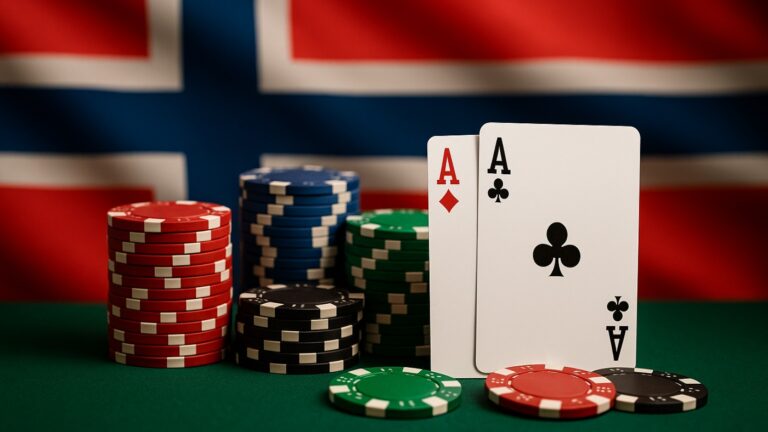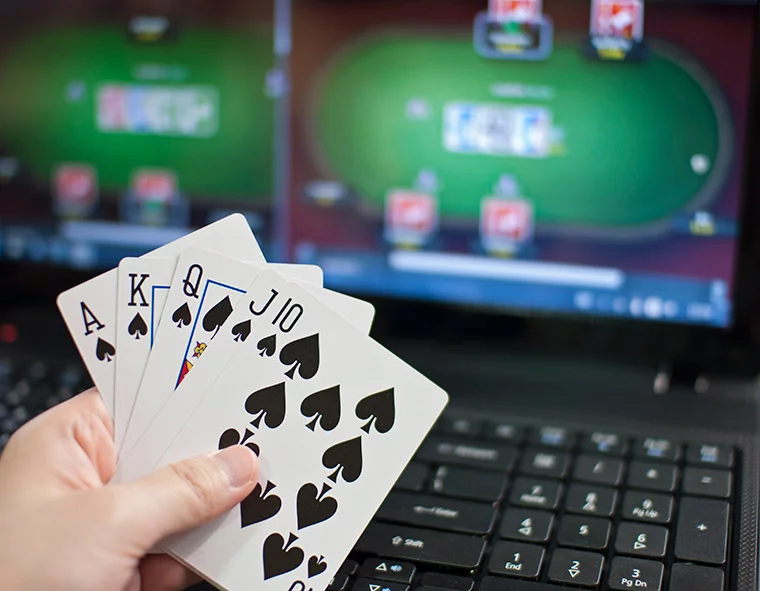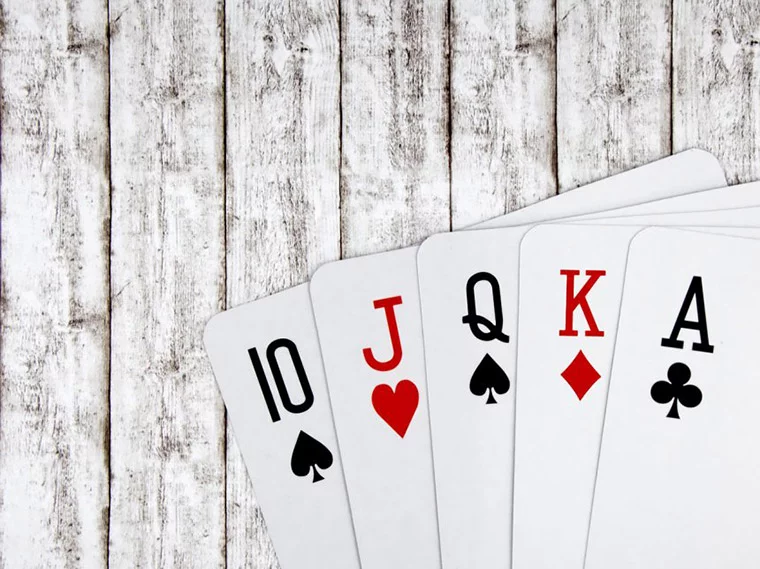Poker has always held a certain fascination in Norway, but the game exists in a complicated space between strict gambling laws and a passionate player community.
Once a game of drifters and tricksters, played in smoke-filled casinos and back rooms, modern poker has been transformed. Today it’s one of the world’s most popular card games to play and watch.

Ever since Chris Moneymaker came out of nowhere to win the World Series of Poker (WSOP) in 2003 after qualifying online, things have been different.
His victory sparked an online boom, with millions learning the game on digital platforms before venturing into live tournaments.
In Norway, though, poker has always been a little more complicated. Tight gambling laws mean the game has lived on the margins, with limited exceptions and restrictions still in place. Yet despite this, Norwegian players have left their mark on the global stage.
So what is the legal status of poker in Norway today? Can you play at home? Are tournaments allowed? Who are the most famous Norwegian poker players? And what about tax on winnings? Let’s go all in and find out.
Table of Contents
What is Poker?
Rather than one specific game, poker is actually a family of closely-related multi-player card games that combine gambling, strategy, and skill.
While recreational playing involves a fair amount of chance, professional players use probability, game theory and psychology to reduce the impact of chance over the long-term.
All variants of the game involve betting as a critical part of the gameplay. The winner of each hand is determined by a combination of the players' cards and a set of shared cards.
Texas Hold ‘Em is the most popular variant by a distance. It's the one you'll most likely see on the TV when you stumble upon a late-night broadcast.
Within Texas Hold ‘Em there are further variants to do with gambling limits and procedure. Other popular variants include Omaha, five-card draw, and five- and seven-card stud.
There are two different methods to play poker: cash games and tournaments. In cash games, players exchange cash for chips and play for however long they wish.

In tournaments, players pay a set entry fee and all receive the same amount of starting chips. Play continues until one player holds all the chips and is declared the tournament winner.
Depending on the size of the tournament, there will be prizes for the top finishers, not just the overall winner.
Is Poker Legal in Norway?
Gambling in Norway is tightly controlled, with Norsk Tipping (lottery, sports, some online games) and Norsk Rikstoto (horse racing) holding state monopolies. Private casinos are not allowed.
For many years, organised poker games were banned. That changed slightly in 2014, when home poker games were legalised under strict conditions:
- Maximum 20 players
- Maximum stake of NOK 1,000 per player
- The game must not be organised professionally or for profit
This means that while you can host a friendly poker night at home, anything beyond that—especially with higher stakes—remains illegal.
There are also no commercial poker rooms or casinos on Norwegian soil. The one major exception is the Norwegian Poker Championship, which operates under a government licence with set restrictions. More on that below.
Playing Poker Online in Norway
Online poker is where things get more complicated. All poker sites are based abroad, typically in places like Malta or Gibraltar. Norwegian authorities cannot stop their operation, but they have made it difficult for Norwegians to use them.
Banks and financial institutions in Norway are prohibited from transferring money to unlicensed gambling providers. If you try to deposit using a Norwegian debit or credit card, the payment will usually be blocked.
In 2025, these restrictions were stepped up again, with the introduction of DNS blocking of unlicensed gambling websites, making it harder to access offshore poker rooms directly.
That said, determined players find workarounds, often by using e-wallets, prepaid cards, or even cryptocurrency. Many Norwegians also use the free play options on these platforms to learn the game without real money at risk.

Just be aware that a player's psychology changes greatly when real money is at stake!
Norwegian Poker Tournaments
Despite the restrictions, Norway now has two very different but equally important annual championships.
The “Exile” Championship Abroad has long been the highlight of the Norwegian poker calendar. For years it was based in Dublin, where thousands of Norwegians would descend every Easter to play poker legally together.
More recently the tournament shifted to Bratislava, which offers larger venues, lower costs, and easier logistics for Norwegian travellers.
Today it remains the bigger and more prestigious of the two events, regularly drawing fields of several thousand players. The atmosphere is part poker festival, part cultural reunion, with family and friends travelling along for the ride.
Prize pools can reach levels comparable to major European series, making it a magnet for professionals, high-rollers, and ambitious amateurs alike.
By contrast, the domestic Norwegian Championship represents poker’s careful integration into Norway’s legal framework. First staged in 2015, it was the first time competitive poker was permitted on home soil.
Now held each year at Gardermoen just outside Oslo, the event runs under strict government-approved limits: capped buy-ins, maximum prizes, and defined participation numbers.
These restrictions create a very different dynamic, with a stronger emphasis on recreational players, community spirit, and accessibility. For many Norwegians, the Gardermoen championship is their only chance to sit down in a regulated tournament without leaving the country.
The two tournaments now coexist comfortably, each serving its own purpose. Bratislava offers the glamour, scale, and international-level prize pools that attract Norway’s best-known pros.
Gardermoen, meanwhile, provides an inclusive space for everyday players to test their skills in a legal environment. Both receive extensive Norwegian media coverage, with final tables streamed online and even televised, helping to cement poker’s place in the national consciousness despite the country’s restrictive gambling laws.
Is Poker Popular in Norway?
Poker in Norway has never been quite as mainstream as in countries like the UK or USA. For decades, strict gambling laws forced the game underground.
Small home games continued quietly, but the lack of legal venues meant poker was often associated with shady backrooms rather than a respectable pastime. This legacy still shapes how many Norwegians view the game today.
Yet despite these obstacles, poker has carved out a surprisingly strong niche. The annual Norwegian championships—both the domestic event at Gardermoen and the larger “exile” tournament abroad—regularly draw thousands of players.

On the international stage, Norwegian professionals have made their mark in some of the world’s biggest tournaments. The headline-grabbing success of players like Espen Uhlen Jørstad, who won the 2022 World Series of Poker Main Event, has inspired a new generation and brought poker back into the national spotlight.
Online poker, though restricted by banking blocks and DNS barriers, continues to thrive through offshore providers.
In short: while poker is not a mass-market hobby in Norway, it has a dedicated community and a strong presence in the media when major events roll around.
Tax on Poker Winnings
Tax is often the trickiest part of poker in Norway. In general, poker winnings over NOK 10,000 are taxable at the standard rate of around 22%. Smaller, incidental wins fall under tax-free hobby income.
For professional players—those who treat poker as their main source of income—tax rules are stricter. Their winnings can be considered business income, which allows deductions for travel and expenses but also imposes heavier reporting requirements.
The challenge is that poker straddles the line between skill and chance. That leaves many players in a grey area, especially when tournament winnings are taxable but losses cannot always be deducted.
This could very easy lead to a situation where a player who wins $40,000 in a tournament actually breaks even over the course of their playing year, but is then liable for tax on that $40,000.
Some top players have relocated abroad, often to the UK or the USA, to benefit from clearer tax regimes.
If you play seriously, it’s best to keep detailed records of wins and losses and seek professional advice. The Norwegian Poker Association remains the best point of contact for guidance.
Famous Norwegian Poker Players
Norwegian law may have tried to keep the game underground, but that hasn’t stopped a number of players from breaking through on the international stage. Some of them are household names among poker fans worldwide, while others remain cult figures within the community.
Espen Uhlen Jørstad is undoubtedly the country’s biggest poker name today. In 2022, he won the World Series of Poker Main Event in Las Vegas, pocketing more than $10 million in prize money. It was a historic victory: not only did Jørstad become the first Norwegian to win the Main Event, but he also cemented his place as one of the world’s elite tournament players.
Long before Jørstad, Annette Obrestad put Norway on the poker map. Known online as Annette_15, she became a sensation in the mid-2000s thanks to her aggressive style and fearless approach. In 2007, the day before her 19th birthday, she won the inaugural World Series of Poker Europe Main Event in London. Her victory made her the youngest person ever to win a WSOP bracelet.
Felix Stephensen enjoyed his breakthrough in 2014, when he finished runner-up in the WSOP Main Event. Based in London at the time, he walked away with more than $5 million, a result that still stands among the largest Norwegian poker cashes of all time.
Another legendary figure is Johnny Lodden, who rose to prominence during the online poker boom of the early 2000s. Known for his sharp instincts and relentless competitiveness, Lodden has amassed millions in live and online winnings. He has also been a regular face on televised poker shows, helping to inspire a new generation of Norwegian players.
Preben Stokkan represents the modern wave of Norwegian professionals. He has made deep runs in multiple WSOP events and is widely respected for his consistency on the high-stakes international circuit.
Beyond these headline names, Norway has produced a solid core of accomplished players who have left their mark on the European and global scenes. To celebrate these achievements, the Norwegian Poker Association has created a Hall of Fame, which now includes eleven players recognised for their contributions to the game.
Just as important is the next generation of Norwegian players, many of whom cut their teeth in the domestic and overseas-based Norwegian Championships. Each year, new names emerge from these events, often younger players making their first live tournament appearances.
Among the new generation of Norwegian players making waves are Vebjørn Monstad (who claimed the 2024 NLH Main Event at NM for over NOK 1.2 million), Jon Holtan Øverbø (U25 champion), Mikal Blomlie (Deepstack winner), and Tarjei Forus (winner of the 8-Game Mixed event at the NM abroad). These names suggest Norway’s next crop is already proving their mettle.
The Future of Poker in Norway
The future remains uncertain. Full legalisation of commercial poker seems unlikely in the near term, as the Norwegian government continues to defend its gambling monopoly.
That said, the existence of a state-sanctioned championship suggests some willingness to accommodate poker within a tightly regulated framework.
Some argue Norsk Tipping should eventually be allowed to offer a legal online poker room, complete with betting limits and responsible gaming controls.
Until then, Norwegian players will continue to balance home games, sanctioned tournaments, and offshore online play, while making their mark on the global stage.


